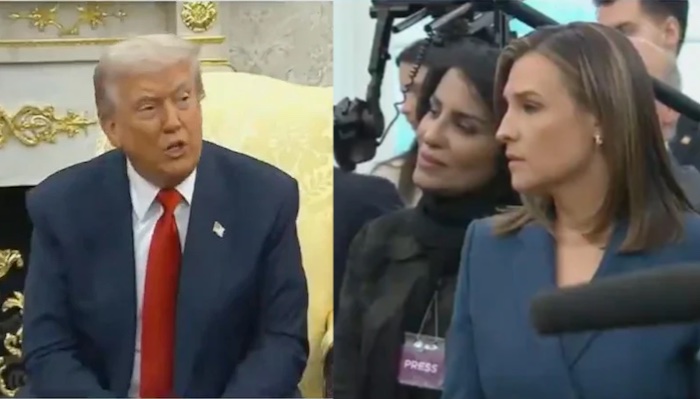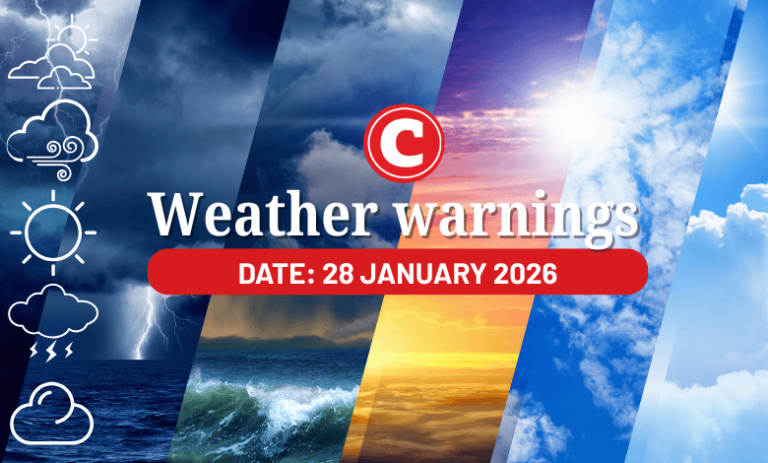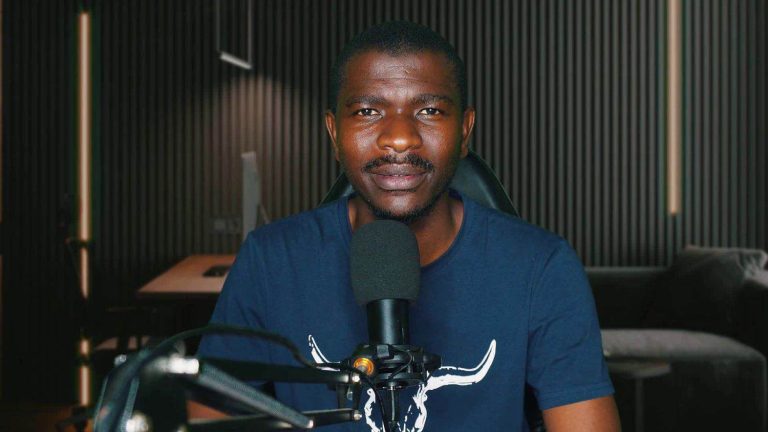
The White House on Thursday defended President Donald Trump after he sparked controversy by calling a female reporter “piggy” during a tense exchange over the late convicted sex offender Jeffrey Epstein. The remark, made aboard Air Force One last week and now widely circulated online, has drawn criticism from press freedom advocates who say the president’s language is part of a troubling pattern of demeaning women in the media.
In the exchange aboard Air Force One last week, which has since gone viral, Trump leaned toward the reporter, pointed his finger and said, “Quiet, piggy” as she pressed him about a recently released Epstein email in which the New York financier claimed Trump “knew about the girls.”
Responding to questions about the incident, White House press secretary Karoline Leavitt said Trump’s supporters value his candour and that journalists should appreciate the president’s willingness to engage with the press.
“He calls out fake news when he sees it and gets frustrated with reporters who spread false information,” Leavitt said, without providing evidence of any inaccuracies in the reporter’s line of questioning. She added that Trump offers “unprecedented access” and answers questions “on a near-daily basis.”
The dispute comes as Trump has also faced criticism for another tense encounter earlier in the week. On Tuesday, he called a different female journalist “a terrible person” in the Oval Office after she questioned Saudi Crown Prince Mohammed bin Salman about the murder of journalist Jamal Khashoggi, and asked Trump why his administration had not released Epstein-related files.
The president signed legislation on Wednesday directing the Justice Department to disclose documents from its long-running Epstein investigation, reversing earlier resistance to making the files public.
The Society of Professional Journalists (SPJ) has condemned Trump’s recent comments, warning that personal insults directed at women undermine press freedom. “Nobody expects presidents to be reporters’ biggest fans,” SPJ Executive Director Caroline Hendrie said. “But targeting women reporters with humiliating insults should not be tolerated.”
The White House declined further comment beyond Leavitt’s earlier defence, even as the backlash continues from journalists and advocacy groups who say the president’s tone sets a dangerous precedent for the treatment of the press.
Melissa Enoch


